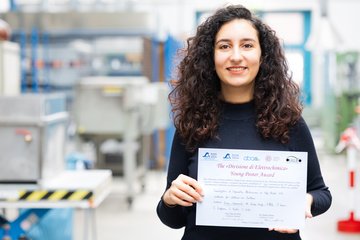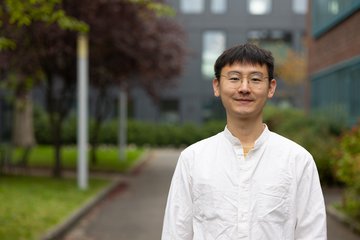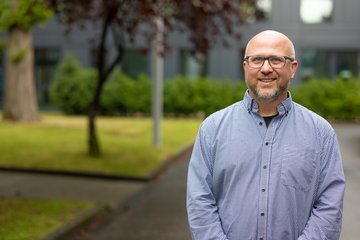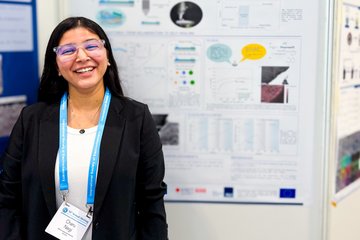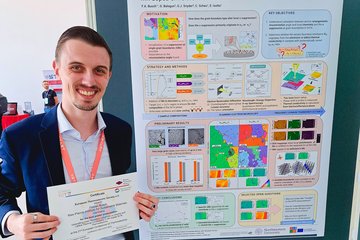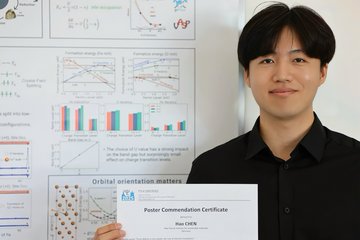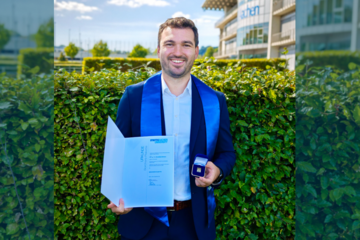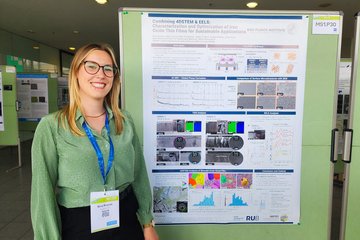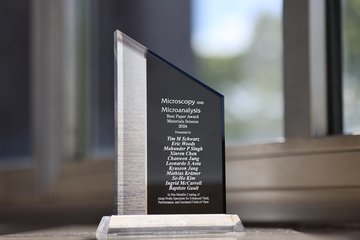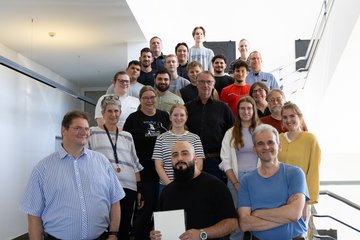All genres
1.
Journal Article
Microstructural and micromechanical characterization of intergranular oxidation in Fe–15Cr alloy. Corrosion Science 225, 111613 (2023)
2.
Journal Article
Dislocation-enhanced electrical conductivity in rutile TiO2 accessed by room-temperature nanoindentation. Scripta Materialia 212, 114543 (2022)
3.
Journal Article
Nanoindentation pop‐in in oxides at room temperature: dislocation activation or crack formation? Journal of the American Ceramic Society 104 (9), pp. 4728 - 4741 (2021)
4.
Journal Article
In situ nanoindentation during electrochemical hydrogen charging: a comparison between front-side and a novel back-side charging approach. Journal of Materials Science 56 (14), pp. 8732 - 8744 (2021)
5.
Journal Article
Interfacial nanophases stabilize nanotwins in high-entropy alloys. Acta Materialia 185, pp. 218 - 232 (2020)
6.
Journal Article
High-linearity hydrogen peroxide sensor based on nanoporous gold electrode. Journal of the Electrochemical Society 166 (10), pp. B814 - B820 (2019)
7.
Journal Article
Isothermal oxidation behavior of NiAl and NiAl–(Cr,Mo) eutectic alloys. Corrosion Science 151, pp. 27 - 34 (2019)
8.
Journal Article
Plastic deformation of tungsten due to deuterium plasma exposure: insights from micro-compression tests. Scripta Materialia 162, pp. 132 - 135 (2019)
9.
Journal Article
Beating hydrogen with its own weapons: nano-twin gradients enhance embrittlement resistance of a high-entropy alloy. Materials Today 21 (10), pp. 1003 - 1009 (2018)
10.
Journal Article
Isothermal oxidation behavior of TribaloyTM T400 and T800. npj Materials Degradation 2, 38 (2018)
11.
Journal Article
Hydrogen embrittlement of tungsten induced by deuterium plasma: Insights from nanoindentation tests. Journal of Materials Research 33 (20), pp. 3530 - 3536 (2018)
12.
Journal Article
Influence of composition and crystal structure on the fracture toughness of NbCo2 Laves phase studied by micro-cantilever bending tests. Materials and Design 145, pp. 116 - 121 (2018)
13.
Journal Article
Microstructure evolution of FeNiCr alloy induced by stress-oxidation coupling using high temperature nanoindentation. Corrosion Science 135, pp. 192 - 196 (2018)
14.
Journal Article
In situ full-field measurement of surface oxidation on Ni-based alloy using high temperature scanning probe microscopy. Scientific Reports 8, 6684, pp. 1 - 9 (2018)
15.
Journal Article
Effect of interface reaction and diffusion on stress-oxidation coupling at high temperature. Journal of Applied Physics 123 (15), 155301 (2018)
16.
Journal Article
Modification of the mechanism for stress-aided grain boundary oxidation ahead of cracks. Oxidation of Metals 89 (3-4), pp. 331 - 338 (2018)
17.
Journal Article
Prussian Blue Modified Submicron Structured Gold Electrodes for Amperometric Hydrogen Peroxide Sensing. Electroanalysis 30 (3), pp. 583 - 592 (2018)
18.
Journal Article
Hydrogen peroxide sensor based on electrodeposited Prussian blue film. Journal of Applied Electrochemistry 47 (11), pp. 1261 - 1271 (2017)
19.
Talk
Abnormal internal oxidation of grain boundary and its cracking behavior under mechanical stress in an FeCr alloy. DPG Spring Meeting 2023, Dresden, Germany (2023)
20.
Talk
Micromechanical Investigation of Cubical and Hexagonal NbCo2 Laves Phases. Indo-German Bilateral Virtual Workshop on High Performance Metallic Materials for Energy Storage and Power Generation Sector, IGSTC Virtual Workshop MATAPP 2021, online (2021)
